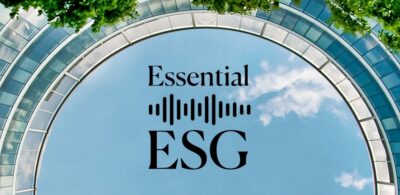Federal Government calls for submissions on the Modern Slavery Act
28 September 2022
The Australian Government is currently undertaking a statutory review of the operation and effectiveness of the Modern Slavery Act 2018 (Cth) (Modern Slavery Act) over the first three years since its commencement.
The review is being led by Professor John MacMillan, supported by the Attorney-General’s Department which has released an issues paper outlining key questions. A range of public consultations are being held and public responses are being invited via an online survey or written submissions on the review of Australia’s Modern Slavery Act 2018 until 22 November 2022.
Terms of reference
The terms of reference for the review require consideration of issues including:
- the operation of the Modern Slavery Act since its commencement and compliance with the Modern Slavery Act over that period;
- whether additional measures to improve compliance with the Act are necessary or desirable, such as civil penalties for failure to comply with the requirements of the Act;
- whether it is necessary or desirable to do anything else to improve the operation of the Act and any rules;
- the extent to which the mandatory reporting criteria set out in Section 16 of the Act are appropriate;
- the appropriateness of the A$100 million reporting entity threshold, reporting periods and reporting deadlines; and
- whether it is necessary or desirable for an independent body, such as an Anti-Slavery Commissioner, to oversee the implementation of the Act and / or the enforcement of the Act.
Issues paper
The issues paper, which is now open for consultation, has defined key questions that will be addressed, which include:
- whether the Modern Slavery Act has had a positive impact;
- whether the Modern Slavery Act reporting requirements are appropriate;
- whether additional measures are required to improve compliance with reporting obligations;
- whether the public sector (i.e. Australian Government entities) reporting requirements are adequate;
- whether the online Modern Slavery Statements Register adequately supports the objectives of the Modern Slavery Act;
- how the Modern Slavery Act is administered and the role of an Anti-Slavery Commissioner; and
- whether a further statutory review process of the Modern Slavery Act should be enacted.
Emerging issues and questions
Some of the key issues and questions that are emerging include:
- Whether a definition of, and specific requirements for undertaking, due diligence should be embedded in the Modern Slavery Act. Currently, entities are required to describe the actions taken to assess and address risks including due diligence and remediation processes. However, there is no definition of ‘due diligence’ in the current Modern Slavery Act and the issues paper questions whether including a definition would provide greater clarity in respect of the reporting requirements.
- Whether the reporting threshold should be lowered. Currently, the threshold is A$100 million annual consolidated revenue and there has been frequent discussion about whether this threshold should be lowered, and whether A$50 million would be appropriate. A key concern is whether a lower threshold would have a disproportionately burdensome impact on smaller businesses and suppliers without significantly changing the types of business and supply chain currently reporting.
- Whether the current reporting requirements are appropriate. The issues paper noted that entities struggle to assess the effectiveness of their actions, as well as appropriately engage with and describe consultation processes between parent and subsidiary entities, or between reporting entities where joint statements are submitted. Consideration is being given to providing clearer or more extensive guidance in respect of or amending the mandatory reporting criteria.
- Whether enforcement measures should be introduced to improve compliance with the Modern Slavery Act. These measures may include civil penalties, injunctions, or exclusion from government contracts.
The review has also been asked to consider the role of an Anti-Slavery Commissioner. The Government has committed to establishing a Commonwealth Anti-Slavery Commissioner and the review is seeking views on the role, functions and powers the Commissioner should exercise. This includes views on whether the Anti-Slavery Commissioner should have enforcement powers if a penalty regime is established under the Modern Slavery Act.
Next steps
Interested parties can engage in the consultation process by either completing a targeted online survey or making a written submission to the Modern Slavery Act Review Secretariat.
The review encourages all members of the public to participate, especially reporting entities, civil society organisations and peak bodies. There will be further in-person and online consultation sessions conducted by Professor McMillan and interested parties are encouraged to contact [email protected] to participate in these sessions.
The consultation period closes on Tuesday 22 November 2022.
Although any amendments to the Modern Slavery Act would not be implemented for at least a year, businesses can expect that some reforms will be implemented and should continue to improve their modern slavery assessment and reporting processes. In particular, businesses are encouraged to develop a clear modern slavery due diligence framework applicable to their operations and supply chain.
Authors

Head of Responsible Business and ESG

Partner
Associate
Tags
This publication is introductory in nature. Its content is current at the date of publication. It does not constitute legal advice and should not be relied upon as such. You should always obtain legal advice based on your specific circumstances before taking any action relating to matters covered by this publication. Some information may have been obtained from external sources, and we cannot guarantee the accuracy or currency of any such information.
Key Contacts
Head of Responsible Business and ESG


